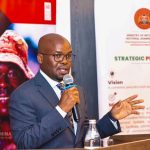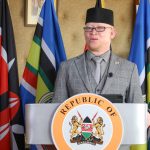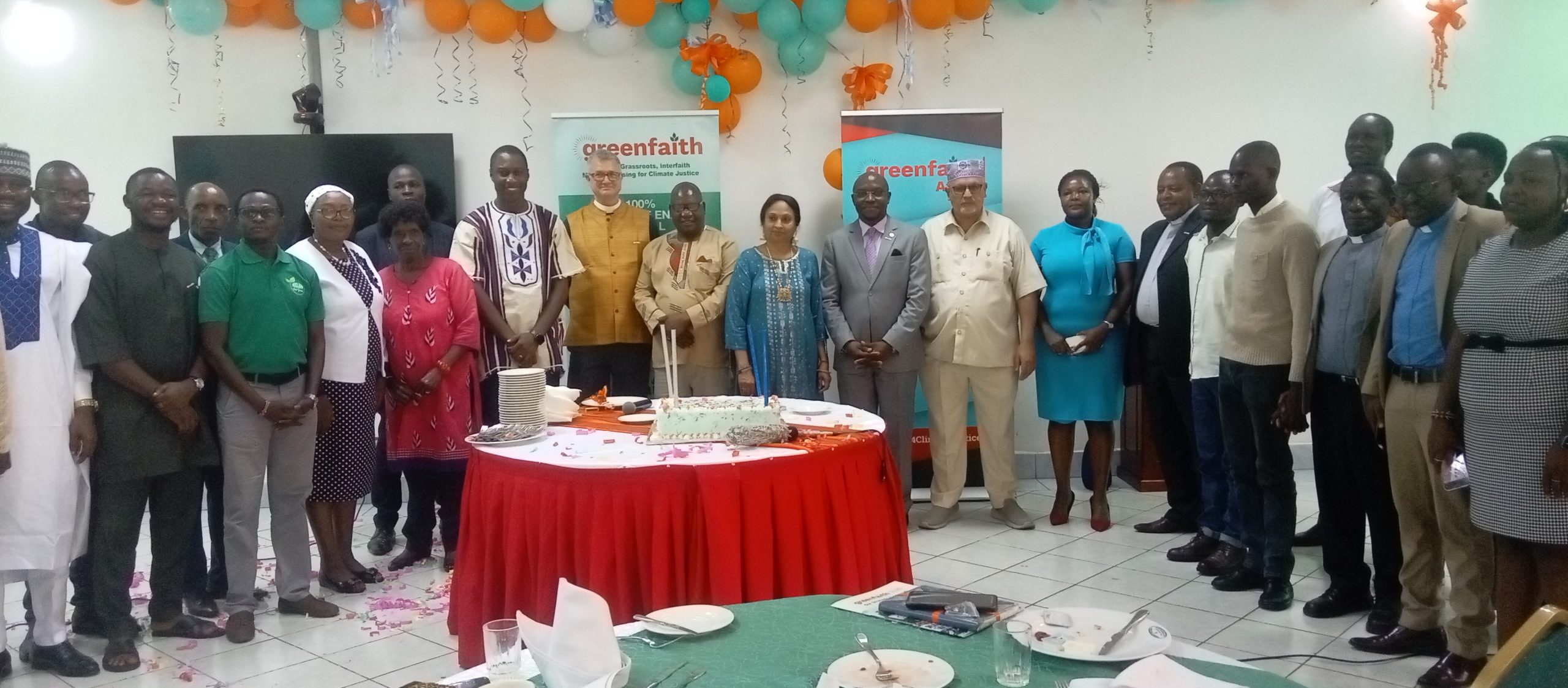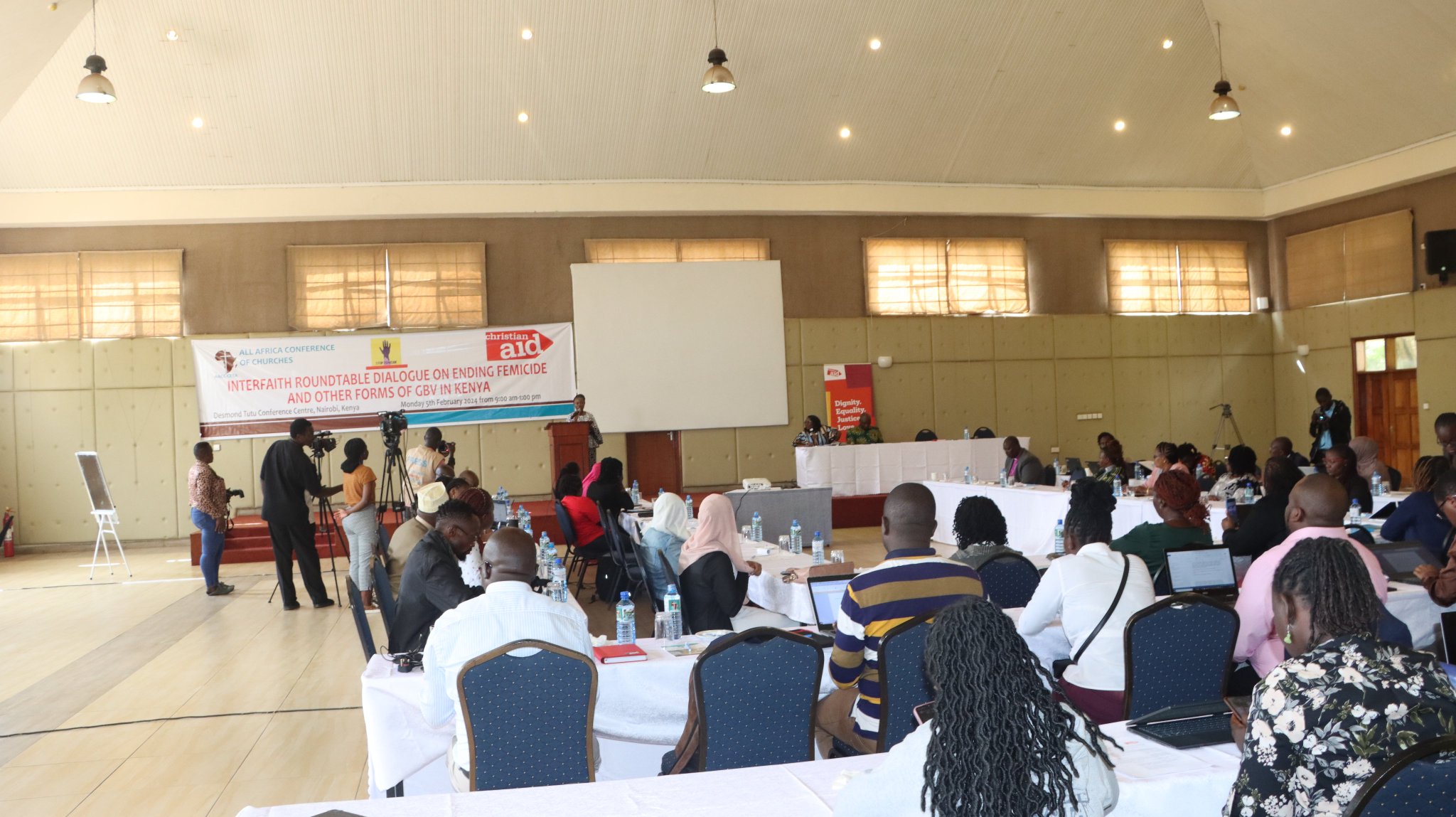By Eddah Waithaka
On Monday, November 11th, 2024, the African Telecommunications Union (ATU) and the South African Department of Communications and Digital Technologies (DCDT) convened a high-level ministerial forum at AfricaCom 2024. The event aimed to explore strategies for fostering a prosperous, inclusive, and sustainable Africa through the advancement of information and communication technology (ICT).
High-ranking officials and ministers responsible for communications and digital technologies from Uganda, South Africa, and Kenya, in collaboration with the African Telecommunications Union (ATU), have officially endorsed a joint communiqué. This document underscores their dedication to fostering inclusive and sustainable development throughout sub-Saharan Africa.
They have also agreed that such action will start with ICT technologies, including the development of national cloud infrastructures to meet the needs of intelligence and AI adoption; developing solar micro-grids to rapidly increase electricity coverage across sub-Saharan Africa; and expanding network connectivity coverage in rural areas and developing smart education to further bridge the urban-rural divide.
The launch of these position papers signifies Huawei’s ongoing commitment to driving digital transformation in Africa. By collaborating with influential organizations like the ATU, Digital Council Africa, and GSMA, Huawei aims to provide tailored insights and practical solutions that address the unique challenges faced by African nations.
The papers offer a comprehensive framework for fostering ubiquitous connectivity, harnessing digital tools for national prosperity, and leveraging cloud computing to enhance efficiency across various sectors. Through these initiatives, Huawei seeks to empower governments and businesses to create a more interconnected and digitally advanced future, ultimately contributing to the continent’s sustainable development goals.
Throughout the Forum’s keynote speeches, panel discussions, and case-sharing sessions, esteemed speakers shared their perspectives on tackling the challenges encountered in Sub-Saharan Africa. They also highlighted the potential opportunities that the intelligent and digital age presents for the region.
Read Also : https://switchmedianews.wordpress.com/2024/11/12/cs-mvurya-announces-kenya-uae-economic-partnership-agreement/
Speaking during the forum, Mr. John OMO, Secretary General of the ATU, highlighted the urgency of addressing infrastructure constraints, such as those related to fibre and cloud, in many sub-Saharan African countries, stating, “the whole of sub-Saharan Africa has less cloud space than Switzerland. And I think our governments need to incentivize industries to develop cloud services in our countries.”
Further, Mr. Solly Malatsi, Minister of Communications and Digital Technologies of the Republic of South Africa, stressed the importance of synergy between the development of ICT technology and renewable energy such as solar power.
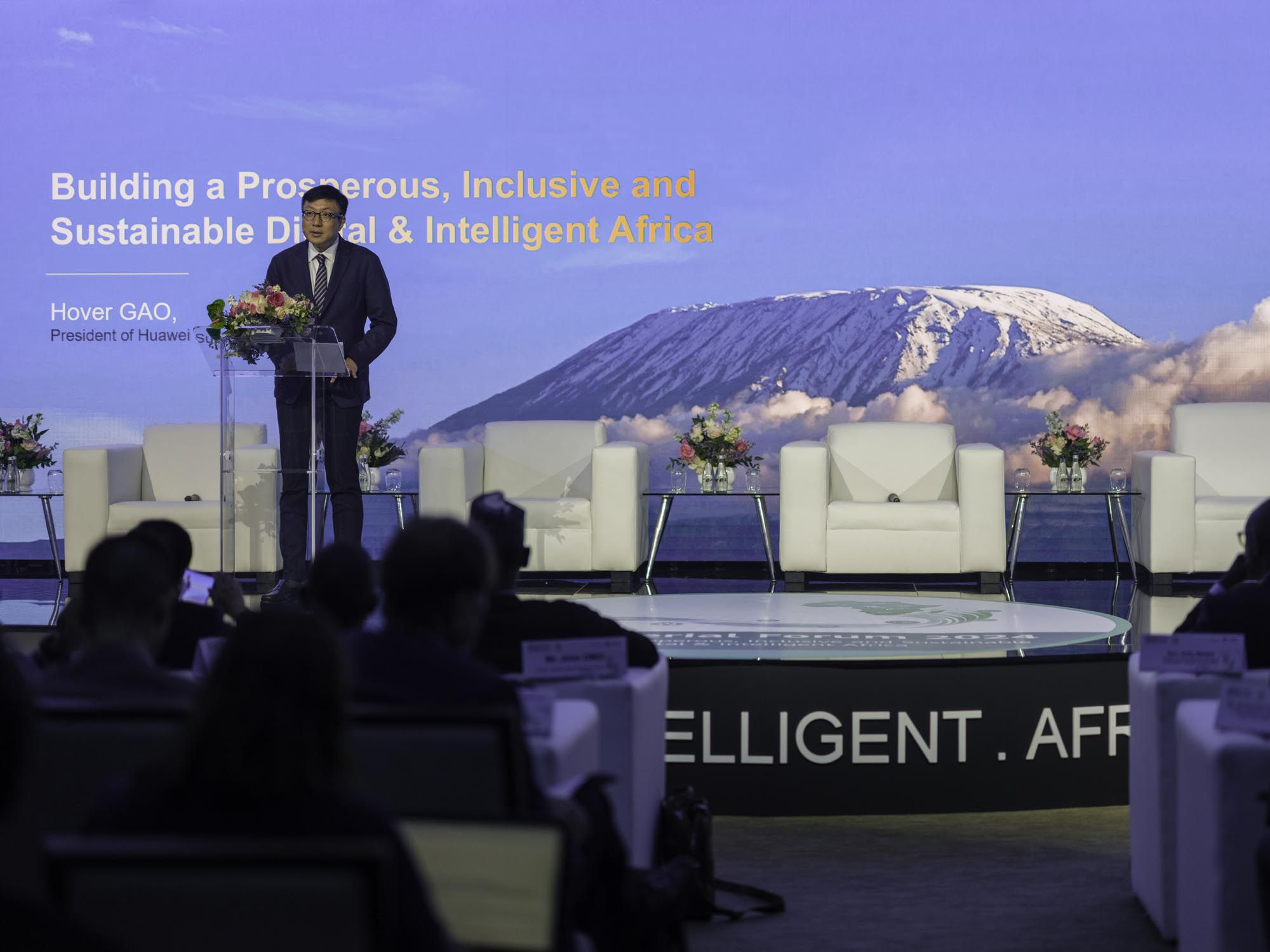
He said: “The digital future of our country and the continent depends on our ability to integrate renewable energy with digital infrastructure. As we embark on this journey, it is important to remember that digital transformation is not simply about technology. It’s about empowering individuals; it’s about empowering communities and it’s about empowering nations to realize their full potential. Therefore, it’s our responsibility as leaders in government, the private sector and non-governmental organizations to work hand in hand and ensure that the digital revolution is one of inclusion, sustainability and opportunity for all.”
Dr Margaret Nyambura Ndung’u, Cabinet Secretary in the Ministry of Information Communication and Digital Economy of the Republic of Kenya, shared Kenya’s experience in driving comprehensive and inclusive digitalization across the country. She noted, “We are taking a comprehensive approach to make sure that we are developing technologies, we are building infrastructure, we are improving access, we are building capacity, and we are raising awareness, not just for those working in the public sector but for the entire population.”
Mr. Kabbyanga Godfrey Baluku, Minister of State for National Guidance, Republic of Uganda, discussed Uganda’s plan for inclusive and sustainable digitalization through high-level policy making and practical implementation. He said: “Uganda’s vision is to transform society from a peasant to a modern and prosperous country. For this to happen, we need to address some fundamental issues and one of them is electricity and then ICT. And we also developed the Uganda Digital Vision 2040, which we thought would act as a transformational goal. And then recently, we also developed the Digital Transformation Roadmap from 2023, which we thought should be used as a tool to achieve what we want to achieve by 2027 in terms of ICT.” Looking to the future, he noted, “As far as cloud data is concerned, we first need to work on digital infrastructure, which is key. We are currently working to expand the national backbone network, and Huawei is the lead company we are cooperating with in this regard.”
Dr Li Zhengmao, Chairman of the World Broadband Association, shared China’s experience in digitalization, explaining that by building high-quality digital infrastructure, China has laid a solid foundation for the digital economy, society and government. He also pointed out that this experience can be applied to the Sub-Saharan Africa region, and he expects the WBBA to further strengthen cooperation with African countries to promote the digital economy and further bridge the digital divide.
Mr. Hover Gao, President of Huawei Sub-Saharan Africa, confirmed that Huawei stands ready to work closely with all parties and leverage the company’s expertise in order to contribute to the ongoing development of a prosperous, inclusive and sustainable Digital and Intelligent Africa.
At the forum, Huawei unveiled the Global Digitalization Index (GDI), developed in partnership with IDC. This index assesses the maturity of a country’s ICT industry by examining various digital infrastructure indicators such as computing, storage, cloud services, and green energy. Additionally, the GDI research revealed that an investment of US$1 in digital transformation results in an impressive return of US$8.30 for a country’s digital economy.
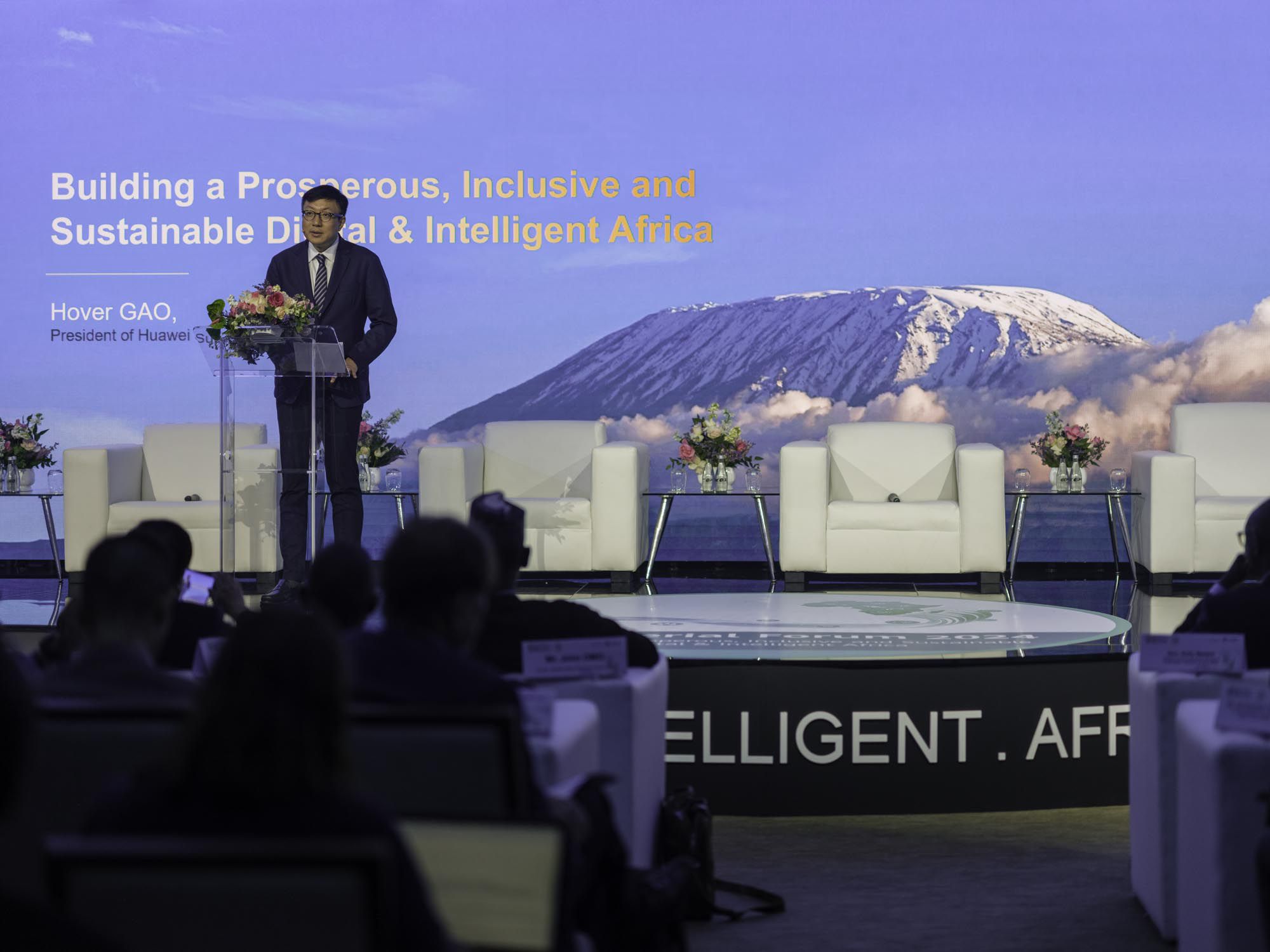
AfricaCom is one of the largest Information and communications technology (ICT) industry exhibitions anywhere in Africa, and this year it was attended by more than 300 exhibitors and 15,000 participants.



